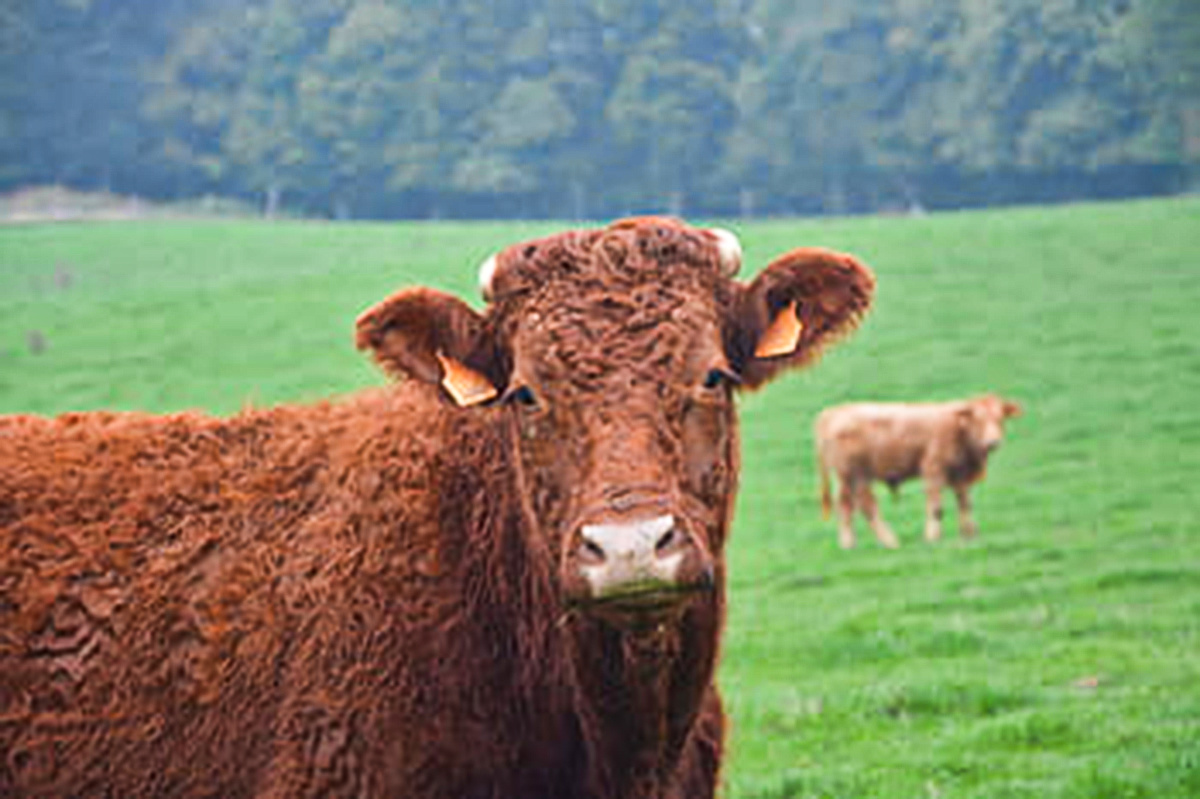This week on the Hebrew calendar is Shabbat Parah. It is one of the four special Shabbatot that prepare us for Passover, and comes immediately after Purim. The Torah reading for this Shabbat is special. Similar to last week, which was Shabbat Zachor, we read Parshat Ki Tisa (the story of the Golden Calf) AND Numbers Chapter 19. We are going to focus on Numbers Chapter 19 – the story of the Red Heifer.
The use of an all red cow for use during ritual purity is a supra-rationale mandate of the Torah – it doesn’t really make any sense, but we do it anyway because it is what we are commanded and because it is important. One form of ritual impurity is contracted by either touching or being in the same room as a corpse. The process begins with the slaughtering of a perfect red cow that has not been used for any kind of work. It continues with the burning of it on the altar and then moving the ashes and instructions about sprinkling water. Each step requires a new, ritually clean person to perform it, and requires that person to wash their clothes and body after the step. Not only are we told how to become ritually pure, it is pointed out that ritual purity is a group effort and group process that no person can do on their own.
The line that stuck out to us the most was, “Whoever touches the corpse of a human soul which dies, and he does not cleanse himself, he has defiled the Mishkan of the Lord, and that soul shall be cut off from Israel. For the sprinkling water was not sprinkled on him, so he remains unclean, and his uncleanness remains upon him.” This portion as a whole shows us, along with many other traditions in Judaism, that Judaism is a religion of forgiveness and allows its followers to repent for their sins and be forgiven for what they’ve done. However, as this verse supports, in order for someone to truly be forgiven, they must put in the work. If someone touches a corpse and does not sprinkle themselves with the ritual purifying water, they shall remain unclean and will even be cut off from the people of Israel. We touch on this point every year at the High Holy Days. In order to have true teshuvah, we must not only say we are sorry or recognize that we are impure, but also put in the work to make ourselves pure again. Only when we put in true effort to cleanse ourselves and become better people can we become pure.
There are many ways we can relate this today, one character that comes to mind is The Grinch. I don’t know about you, but I love this green furry fellow. Here’s a quick rundown of this classic Dr. Seuss character for those of you who are unfamiliar or may need a refresher. As mentioned earlier, the Grinch is a green furry fellow who lives alone on top of a mountain looking over Whoville with his dog Max. The Whos down in Whoville are very jolly, happy-go-lucky, Christmas-loving folk and the Grinch, well, is the exact opposite. He despises Christmas so darn much that he decides to ruin it for everyone. So the Grinch and Max descend on Whoville disguised as Santa and a reindeer and proceed to steal Christmas. But, he meets a sweet little girl who shows him nothing but kindness and the Grinch begins to have a change of heart. In fact, his heart grew three sizes that day!
If someone is being unkind, or mean, or just downright bad, maybe don’t write them off right away (some exceptions may apply). Instead of shunning them, maybe try to help them? Talk to them, see what’s going on. Maybe they’re acting the way they are because they need help or are going through a tough time and don’t know how to properly deal with the situation. Or maybe they were treated poorly by others so now they do the same. In both the story of the Grinch and the red heifer we learn to help one another and that change is always possible. Cindy Lou Who shows the Grinch kindness when many others wouldn’t and it warmed the Grinch’s heart. In this week’s portion, we are taught that ritual purity is a group effort. To put that in a modern perspective, we are taught to help each other. As mentioned in my bio, one of my favorite musicals is SIX (a musical about the 6 wives of King Henry VIII…but like modern) and the queens (and others involved in the show) like to say “Real queens fix each other’s crowns”. So, lift each other up and help one another. Make their hearts grow three sizes, and fix their crowns.
See ya next week & Shabbat Shalom!
Amanda & Marissa





